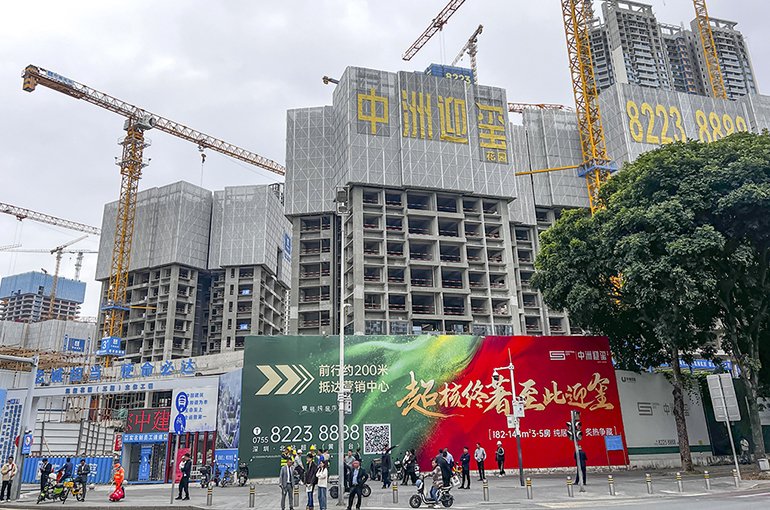(Yicai) Sept. 8 — Shenzhen saw the number of visitors at many new home projects jump after the southeastern city lifted its home-buying restrictions in non-core areas, making it the last of China’s four first-tier cities to relax such policies.
Shenzhen residents can buy an unlimited number of houses in all areas of the city except in Futian and Nanshan districts and the Xinan sub-district in Bao’an district starting Sept. 6, the city announced late on the prior day. In addition, non-locally registered residents can purchase up to two homes.
The number of visitors at most new house projects in Shenzhen jumped by over 10 percent on the day the new policy kicked in from the usual level, several local realtors told Yicai. Some clients who just obtained the right to buy a new home did so on the same day, they noted.
“Customers who were previously on the sidelines took the initiative to come and view houses over the weekend,” a person in charge of a project in Shenzhen’s Guangming district said to Yicai. In addition, a nearby project launched new products, bringing even more visitors than usual, the person pointed out.
The market saw a rebound even in Futian district despite home-buying restrictions still being active there, according to the sales director of a local realtor. “Our project gets on average 150 to 180 visitors a week, with the number expected to exceed the daily average by 10 to 20 percent on Sept. 6,” the person said, but noted that the day was not yet over.
Homes in the project are priced at more than CNY100,000 (USD14,010) per square meter, with buyers being relatively strong financially, so whether they buy is mostly related to their overall market expectations, the sales director noted. “We can feel that customers’ confidence has increased.”
The scope of Shenzhen’s new home-buying policy has exceeded market expectations, mainly because the local real estate market has not yet emerged from the prolonged downturn, said Li Yujia, deputy director of the Guangdong Provincial Housing Policy Research Center. Second-hand home prices have been declining for over four years, while the land market is also quite sluggish, Li added.
Developers and customers had been on the sidelines waiting for Shenzhen to relax its real estate market policies for several months, according to Zou Shaowei, a senior researcher at the Shenzhen Central Plains Research Center. The latest move will effectively boost market confidence, accelerate the pace of builders launching projects, enhance buyers’ willingness to enter, and drive the recovery of market sentiment and sales, Zou pointed out.
After implementing the new policy, certain home-buying thresholds remain in Shenzhen’s core areas, preventing the re-emergence of real estate market speculation, Zou said. Removing restrictions in non-core areas can attract non-local buyers and increase effective demand while accelerating de-stocking, stabilizing home prices, Zou added.
With the arrival of the traditional peak home sales season over this and next month and lifting purchase restrictions, de-stocking in Shenzhen’s outlying areas will significantly progress, Li noted, adding that the local new home market will likely recover.
New home sales in Shenzhen will likely jump this month from the previous month, with a possible up to 50 percent surge, according to Xiao Xiaoping, dean of the Shenzhen Shell Research Institute.
More Chinese cities are expected to follow Guangzhou, Beijing, Shanghai, and Shenzhen in easing their property market policies, said Chen Wenjing, director of policy research at the China Index Academy.
China’s four first-tier cities adopted home purchase restrictions measures during the peak period for real estate speculation, imposing strict limits on the number of houses residents can buy. Guangzhou was the first to lift such rules at the end of September last year after the market entered a downward cycle, with the other three cities making smaller adjustments later that year.
In August, Beijing and Shanghai further relaxed relevant local restrictions in non-core areas.
Editors: Tang Shihua, Martin Kadiev

